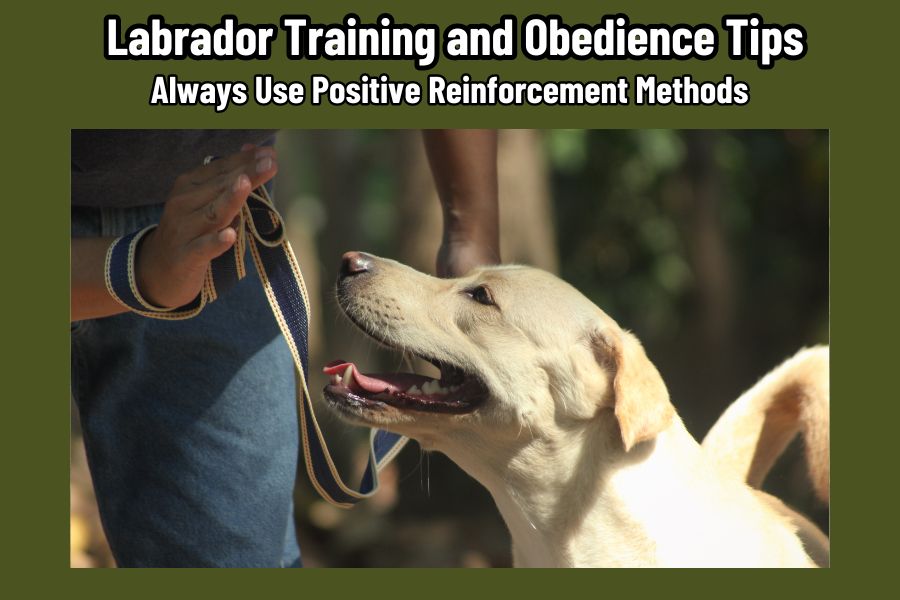Discover the versatile Labrador retriever, the ultimate gundog perfect for hunting, guiding, and rescuing. We’ll explore their rich history, physical and behavioral traits, dietary needs, health care tips, training tips and why they make great hunting dogs.
Introduction
Is there a more beloved dog than the Labrador retriever? Whether they’re bounding through fields or marshlands, gracefully retrieving game, or snuggling on the couch, these versatile dogs capture our hearts and imaginations. Known for their friendly demeanor and incredible work ethic, Labradors are much more than just a hunting dog or family pet; they’re true companions in every sense of the word.
In this article, we dive deep into the world of Labrador retrievers, uncovering their rich history and multifaceted roles in hunting, guiding, and rescuing. If you’re a hunter looking for the perfect gundog or a family seeking a loyal friend, this guide is crafted just for you.
The Origin and History of Labrador Retrievers

Ancestors
The story of the Labrador Retriever begins in the early 1800s on the rugged coast of Newfoundland, Canada. Originally known as the St. John’s dog, this breed was developed by local fishermen to help retrieve fish that escaped from fishing lines and nets, demonstrating their natural affinity for water. These sturdy, hardworking dogs were a mix of smaller Newfoundland dogs and various European breeds brought over by settlers, including Portuguese, Irish, and British working dogs. An interesting fact is that despite their name, the breed does not originate from the Labrador region but from Newfoundland. Their excellent retrieving skills and strong work ethic made them indispensable to the fishermen of the time.
Evolution
As the popularity of the St. John’s dog grew, English nobles visiting Canada in the early 19th century took a keen interest in these versatile dogs and brought them back to England. There, the breed was further refined through selective breeding with British hunting dogs to enhance their retrieving instincts, temperament, and physical traits. By the mid-1800s, these dogs were known as Labrador Retrievers, a nod to their Canadian origins.
However, the breed faced near extinction in Newfoundland during the early 20th century due to strict quarantine laws and heavy dog taxes, which led many owners to cull their litters. Fortunately, the breed’s strong foothold in England allowed it to survive and flourish.
The modern Labrador Retriever comes in two distinct types of retriever dogs: the English and the American. English Labradors are bred primarily for conformation shows and have a stockier build, broader head, and thicker coat. American Labradors, on the other hand, are typically bred for fieldwork and hunting, exhibiting a more athletic build, longer legs, and a leaner frame. Despite these differences, both types share the breed’s characteristic friendly and outgoing temperament.
Recognition by Kennel Clubs
The American Kennel Club (AKC) is a leading registry of purebred dog pedigrees in the United States. The Labrador Retriever was officially recognized by the AKC in 1917, solidifying its status as a beloved breed in America. The Labrador Retriever Club, established in 1931, serves as the parent club for the breed in the United States and was recognized by the AKC the same year. This club is dedicated to preserving the breed’s standard and promoting responsible breeding practices.
Other key kennel clubs around the world also recognize the Labrador Retriever. The Canadian Kennel Club (CKC) recognized the breed in the early 1900s, reflecting its strong roots in North America. The United Kingdom’s Kennel Club (TKC) and the United Kennel Club (UKC) in the United States also recognize Labradors, contributing to their global popularity. The breed’s consistent recognition by these prestigious organizations underscores its universal appeal and versatility.
Modern Labrador Retriever In Action

Today, the Labrador Retriever stands as one of the most versatile breeds, excelling in a multitude of roles. From waterfowl and small game hunting as a gundog to shining in field trials, obedience, and agility events, Labradors are also invaluable as service dogs. Their intelligence, adaptability, and friendly demeanor make them exceptional in various demanding tasks.
Gundog: Bred to Retrieve Game on Land and Water
Labrador Retrievers are renowned for their skills as gundogs, a role they have perfected over generations. Bred specifically for retrieving game both on land and in water, Labradors possess an innate ability to track and bring back birds and other small game with minimal damage. Their keen sense of smell allows them to locate game even in dense cover, while their strong swimming capabilities enable them to retrieve from lakes, rivers, and marshes. Their soft mouths are particularly beneficial, ensuring the game is delivered intact. This combination of traits makes the Labrador Retriever an indispensable companion for hunters, always ready to spring into action and retrieve with precision and enthusiasm.
Guide and Therapy Dogs
Beyond hunting, Labrador Retrievers excel as guide and therapy dogs, providing invaluable emotional and physical support. Their intelligence and gentle nature make them ideal for assisting visually impaired and physically handicapped individuals. Labradors are trained to navigate complex environments, alerting their handlers to obstacles and ensuring safe passage. Additionally, they serve as therapy dogs, offering comfort and companionship to those in hospitals, nursing homes, and other care facilities. Their roles extend to health monitoring, where they are trained to detect signs of strokes, seizures, and other medical conditions, providing crucial assistance in times of need.
Rescue Dogs and Military and Law Enforcement Sniffing Dogs
Labradors are also prominent in rescue operations and as sniffing dogs for the military and law enforcement. Their strong swimming abilities and stamina make them excellent water rescue dogs, able to locate and retrieve individuals in distress. On land, their endurance and tracking skills are vital in search and rescue missions, helping to locate missing persons in various terrains.
In the military, Labrador Retrievers are prized for their bomb-sniffing capabilities, detecting explosives with remarkable accuracy, thus saving countless lives. Law enforcement agencies utilize Labradors for their drug-sniffing abilities, where their keen noses can uncover illicit substances hidden in vehicles, buildings, and other locations. Their reliability and unwavering focus in high-stress situations make them invaluable assets in these critical roles.
Why the Labrador is a Great Hunting Dog and Family Dog?

The Labrador is an exceptional retriever for hunting many types of game, especially waterfowl. They have a rich history as gundogs and their exceptional qualities make them highly capable in the field. Labradors are renowned for their powerful swimming abilities, their exceptional sense of smell, and their high level of intelligence. Their physical and behavioral traits make them excellent gundogs. Let’s first examine their physical traits:
Physical Traits
- Size and Weight: When you first lay eyes on a Labrador Retriever, their robust and athletic build is immediately noticeable. These dogs are designed for endurance and agility, making them exceptional hunters. Their size typically ranges from 21.5 to 24.5 inches in height and they weigh between 55 to 80 pounds, with males generally being larger than females. This sturdy physique is perfect for traversing diverse terrains, from dense forests to open fields, enhancing their hunting capabilities.
- Coat, Colors and Keen Senses: Labradors possess a dense, water-resistant double coat that comes in three primary colors: black, yellow, and chocolate. This coat not only protects them from the elements but also makes them highly adaptable to different environments, whether they’re retrieving game from a cold lake or running through a hot, dry field. Their keen senses are another vital trait. Labradors have an excellent sense of smell, which is crucial for tracking game, and their sharp eyesight ensures they can spot movement from a distance.
- Water Dog-Excellent Swimmer: Labradors love and excel as water dogs due to their unique physical traits. Their weather-resistant double coat keeps them warm and dry even in cold water, allowing them to swim comfortably for extended periods. Their distinctive otter-shaped tail acts as a powerful rudder, aiding in smooth navigation and balance while swimming. Additionally, their webbed toes provide extra propulsion and speed in the water, making them exceptionally efficient swimmers.
- Soft Mouth: One of the most remarkable physical traits of a Labrador Retriever is their “soft mouth.” This trait allows them to carry game, especially birds, without causing any damage, a skill that’s essential for hunting dogs.
- Life Expectancy: Labradors are not just built for function but for longevity as well. With a life expectancy of 10 to 12 years, they offer many years of companionship and service. Their physical traits, from their muscular build to their specialized coat and unique tail, all contribute to making the Labrador Retriever an exceptional and versatile hunting companion.
Labrador Behavioral Traits
The Labrador Retriever is renowned not just for its physical prowess but also for its exceptional behavioral traits. These traits are what truly set them apart as elite hunting companions and beloved family pets.
- Prey Drive and Athleticism: Labradors possess a strong prey drive, an instinctual desire that makes them excellent hunters. This drive fuels their enthusiasm for retrieving game, whether on land or in water. Coupled with their impressive athleticism, Labradors can cover vast distances swiftly and efficiently, tirelessly working alongside their human companions. Their energy and stamina make them ideal for long days in the field, ensuring they can keep up with the most demanding hunting expeditions.
- Versatility and Trainability: One of the most striking aspects of a Labrador Retriever is their versatility. They are not only exceptional hunters but also excel in various roles such as guide dogs for the visually impaired, therapy dogs, and search and rescue dogs. This versatility is a testament to their intelligence and trainability. Labradors are quick learners, able to pick up complex commands and tasks with ease. Their eagerness to please their owners means they respond exceptionally well to positive reinforcement training methods, making them highly adaptable to different training regimens and environments.
- Temperament and Loyalty: The temperament of a Labrador Retriever is another cornerstone of their appeal. Known for their friendly and outgoing nature, Labradors are inherently sociable and enjoy being around people and other animals. Their desire to please their owners is a fundamental trait that makes them not only excellent working dogs but also fantastic family pets. This loyalty and affectionate nature create a deep bond between the dog and their human family, making them protective and reliable companions.
- Family Dog Qualities: Labradors’ behavioral traits make them superb family dogs. Their patience, gentleness, and playful demeanor are perfect for households with children. They are known to be protective yet gentle, ensuring they fit seamlessly into family life. Their trainability and temperament make them easy to integrate into various activities, from family hikes to playing fetch in the backyard.
Labradors are known for their adaptability. Whether it’s retrieving waterfowl from lakes, marshes, or coastlines, or retrieving game on land through dense vegetation, these versatile dogs excel with remarkable skill. The breeding history and natural qualities of Labradors position them as superb hunting companions, garnering a reputation as one of the finest breeds for hunting purposes and as a family dog.
Choosing the Right Labrador Retriever

Do Your Research: Know What You Want
Before bringing a Labrador Retriever into your life, it’s crucial to understand exactly what you’re looking for in a dog. Are you seeking a hunting companion, a family pet, or perhaps a dog that can perform in agility and obedience competitions? Knowing your primary purpose will help guide your decisions throughout the process. Labradors come with different temperaments and energy levels, so identifying your needs and lifestyle will ensure a better match.
Choose A Reputable Breeder
Finding a reputable breeder is one of the most critical steps in choosing the right Labrador Retriever. A good breeder will prioritize the health, temperament, and overall quality of their dogs over mere profit. They should be able to provide detailed information about the puppy’s lineage, health clearances, and any potential genetic issues. Visiting the breeder’s facility can give you insights into how the dogs are raised and treated. A responsible breeder will also ask you questions to ensure their puppies are going to a suitable home.
Assess Physical Traits
When assessing a Labrador Retriever, physical traits are essential to consider, especially if you’re looking for a hunting dog. Look for a well-proportioned body, strong legs, and a dense, water-resistant coat. The otter-like tail, which is thick at the base and tapers to a point, is another distinctive feature. Check for clear, bright eyes and ears that are free from infections. These physical attributes are not only indicative of good health but also essential for a Labrador’s performance in the field.
Assess Behavior Traits
Behavioral traits are equally important when selecting a Labrador Retriever. Observing the puppy’s interaction with its littermates and humans can provide valuable insights into its temperament. Look for signs of curiosity, confidence, and sociability. A good hunting dog should display a healthy level of prey drive and eagerness to retrieve. Additionally, assess the puppy’s responsiveness to commands and its ability to focus, as these are critical for training and obedience.
Verify Health Conditions
Health should be a top priority when choosing a Labrador Retriever. Ensure the breeder provides health clearances for both the puppy’s parents, including tests for hip and elbow dysplasia, eye conditions like progressive retinal atrophy (PRA), and heart conditions. A healthy puppy will have a shiny coat, be free from parasites, and show no signs of respiratory issues. Regular veterinary check-ups are essential for early detection of any potential health problems.
A Labrador Puppy Needs A Lot of Attention: Be Prepared
Bringing a Labrador Retriever puppy into your home means being prepared for a significant time commitment. Labradors are active and intelligent dogs that require plenty of physical exercise and mental stimulation. Ensure you have the time and resources to provide consistent training, socialization, and care. Puppies, in particular, need a lot of attention to develop into well-behaved adult dogs. Be ready for the challenges and joys that come with raising a Labrador, including the chewing, house training, and the boundless energy that needs to be channeled into productive activities.
Labrador Training and Obedience Tips

Puppy (Basic) Training
Starting training early is crucial for developing a well-behaved and skilled Labrador Retriever. The foundation of basic training involves teaching your Labrador essential commands such as sit, stay, come, and heel. These commands are not only vital for everyday behavior but also form the basis for more advanced hunting skills. Socialization is another critical aspect. Exposing your puppy to different environments, people, and other animals will help them become well-adjusted and confident dogs. Use positive reinforcement methods, such as treats and praise, to encourage good behavior. For hunting-specific training, begin by introducing your puppy to various scents and teaching them to retrieve small objects. This early exposure helps to develop their natural retrieving instincts and sharpens their scent-tracking abilities.
Advanced Obedience Training
Once your Labrador Retriever has mastered the basics, it’s time to move on to advanced hunting training. One essential skill for hunting is teaching your Labrador to mark and retrieve downed game accurately. Start by using dummy training, where you throw a dummy object and command your dog to retrieve it. Gradually increase the difficulty by hiding the dummy in different terrains and introducing distractions. Another crucial aspect is teaching your Labrador to follow hand signals and whistle commands. This skill is particularly useful in field and water retrieves where verbal commands might be less effective. Use a combination of hand signals and whistles to guide your dog towards the target.
Additionally, train your Labrador to work both independently and as part of a hunting team. This involves teaching them to quarter, or search an area methodically, and to respond promptly to recall commands. Incorporating real hunting scenarios into training, such as working in different weather conditions and varied terrains, will help your Labrador adapt to actual hunting situations. Regularly practicing these advanced skills ensures that your Labrador Retriever remains sharp and responsive, making them an invaluable hunting companion.
Caring for Your Labrador Retriever

Nutritional Tips
Maintaining your Labrador Retriever in prime condition requires a well-balanced diet that meets their high energy needs. Given their athletic nature, Labradors need a diet rich in protein to support muscle development and repair. High-quality dog food with lean meats, fish, and wholesome grains will provide the necessary nutrients. Incorporate healthy fats from sources like fish oil to support joint health and a glossy coat. Remember, portion control is crucial to prevent obesity, a common issue in Labradors. Regular feeding schedules and portion management will help keep your Labrador fit and ready for action.
Healthcare Tips
Regular health check-ups are essential for preventing and managing breed-specific issues in Labrador Retrievers. Labradors are prone to certain health conditions, such as hip dysplasia, elbow dysplasia, and progressive retinal atrophy (PRA). Early detection through regular veterinary visits can significantly improve their quality of life. Ensure your Labrador receives routine vaccinations and parasite control to ward off common infections. Regular dental check-ups are also crucial, as dental disease can lead to more severe health issues if left untreated.
Grooming Tips
Proper grooming is vital for the overall health of your Labrador Retriever. Their dense, water-resistant coat requires regular brushing to remove loose hair and prevent matting. Bathing them every few months (or more depending on their activity level) will keep their coat clean and skin healthy. Pay close attention to their ears, as Labradors are prone to ear infections. Clean their ears weekly to prevent infections caused by trapped moisture and debris. Regularly check for fleas, ticks, and other parasites that can lead to skin infections. Don’t forget to trim their nails and inspect their paws for any damage or signs of irritation.
Exercise Requirements
Exercise is crucial to keep your Labrador Retriever in top hunting shape and to prevent obesity, anxiety, and destructive behavior. Labradors need at least an hour of vigorous exercise daily. Activities like running, swimming, and playing fetch are excellent ways to burn off their boundless energy. Regular exercise also promotes joint health and heart health, ensuring your Labrador remains active and healthy throughout their life. Engaging them in mental exercises, such as training sessions and puzzle toys, will keep their minds sharp and prevent boredom.
Fostering A Positive Relationship
Building a strong, positive relationship with your Labrador Retriever can be your best reward. Spend quality time with your Lab through activities they enjoy, such as playing fetch, going for walks, or simply relaxing together. Consistent and gentle training methods will foster trust and respect, making them more responsive and well-behaved. Show them affection and reward good behavior with treats and praise to reinforce your bond. Remember, a happy Lab is a well-loved Lab, and a well-loved Lab will eagerly reciprocate with loyalty and companionship. Understanding and meeting their physical and emotional needs will ensure that your Labrador thrives both as a hunting partner and a family member.
Conclusion
In summary, the Labrador Retriever is a versatile and exceptional breed, perfect for hunting, family companionship, and various roles in service and rescue. We’ve explored the rich history and origins of Labradors, their physical and behavioral traits that make them excellent hunting dogs, and their nutritional, healthcare, grooming, and exercise needs. We’ve also discussed training tips for both puppies and advanced hunting skills, and how to choose the right Labrador for your needs. With their intelligence, loyalty, and boundless energy, Labrador Retrievers are truly remarkable companions. Embrace the journey of raising and living with a Labrador, and you’ll discover a bond and partnership that is both rewarding and enduring.
FAQs: Labrador Retriever
Why are Labrador Retrievers so popular as guide dogs?
Labrador Retrievers are incredibly popular as guide dogs due to their exceptional trainability, intelligence, and calm demeanor. Their strong desire to please their handlers and ability to remain focused in various environments make them ideal for guiding and assisting people with visual impairments.
How do Labrador Retrievers’ physical traits enhance their hunting abilities?
The Labrador Retriever‘s physical traits, such as their muscular build, water-resistant double coat, and otter-like tail, enhance their hunting abilities by providing strength, endurance, and excellent swimming capabilities. Their soft mouths allow them to retrieve game without causing damage, which is crucial for hunting.
Are Labrador Retrievers prone to any specific health issues?
Yes, Labrador Retrievers are prone to certain health issues, including hip and elbow dysplasia, progressive retinal atrophy (PRA), and obesity. Regular health check-ups, a balanced diet, and proper exercise can help manage and prevent these conditions.
What makes Labrador Retrievers excellent family pets?
Labrador Retrievers make excellent family pets due to their friendly, gentle, and patient nature. They are great with children and other animals, and their loyal and affectionate disposition ensures they become beloved members of the family.
How do you keep a Labrador Retriever mentally stimulated?
Keeping a Labrador Retriever mentally stimulated involves providing them with regular training sessions, interactive toys, puzzle feeders, and engaging activities like agility courses and scent work. Mental stimulation is essential to prevent boredom and destructive behavior.
Why is early training important for Labrador Retrievers?
Early training is crucial for Labrador Retrievers to develop good behavior and obedience. Starting training at a young age helps instill essential commands, socialization skills, and hunting-specific abilities, ensuring they grow into well-mannered and reliable adults.
Resources: Labrador Retriever
SPECIAL NOTE: “The information provided in this post is based on Google research and the Resource links listed below. While we try to keep the information for this post current, there are no representations expressed or implied, about the completeness, or accuracy of the information provided. Therefore all hunters should always verify current information from these resources along with other local and federal publications”.
Online Resources
- AKC – American Kennel Club
- TKC – The Kennel Club
- UKC – United Kennel Club
- CKC – Canadian Kennel Club
Best Books
“The Labrador Retriever Handbook” by Dr. Kimberly S. Dearth
This comprehensive guide covers everything from the breed’s history to training, care, and health. It’s a must-read for both new and experienced Labrador owners.
“Your Labrador Retriever Puppy: Month by Month” by Terry Albert and Debra Eldredge, DVM
Perfect for new puppy owners, this book provides a month-by-month guide to raising a healthy and well-behaved Labrador Retriever. It includes tips on training, socialization, and care during the crucial first year.
“Labrador Retrievers for Dummies” by Joel Walton and Eve Adamson
A friendly and informative resource, this book offers practical advice on all aspects of owning a Labrador Retriever, from selecting the right puppy to training and health care.
“Training the Best Dog Ever: A 5-Week Program Using the Power of Positive Reinforcement” by Larry Kay and Dawn Sylvia-Stasiewicz
While not specific to Labradors, this highly acclaimed training guide emphasizes positive reinforcement techniques that are particularly effective with intelligent and eager-to-please breeds like the Labrador Retriever.
“The Complete Labrador Handbook: The Essential Guide for New and Prospective Labrador Owners” by Linda Whitwam
This detailed handbook covers every aspect of owning a Labrador, including breed-specific tips on training, feeding, grooming, and health care, making it an invaluable resource for Labrador enthusiasts.


